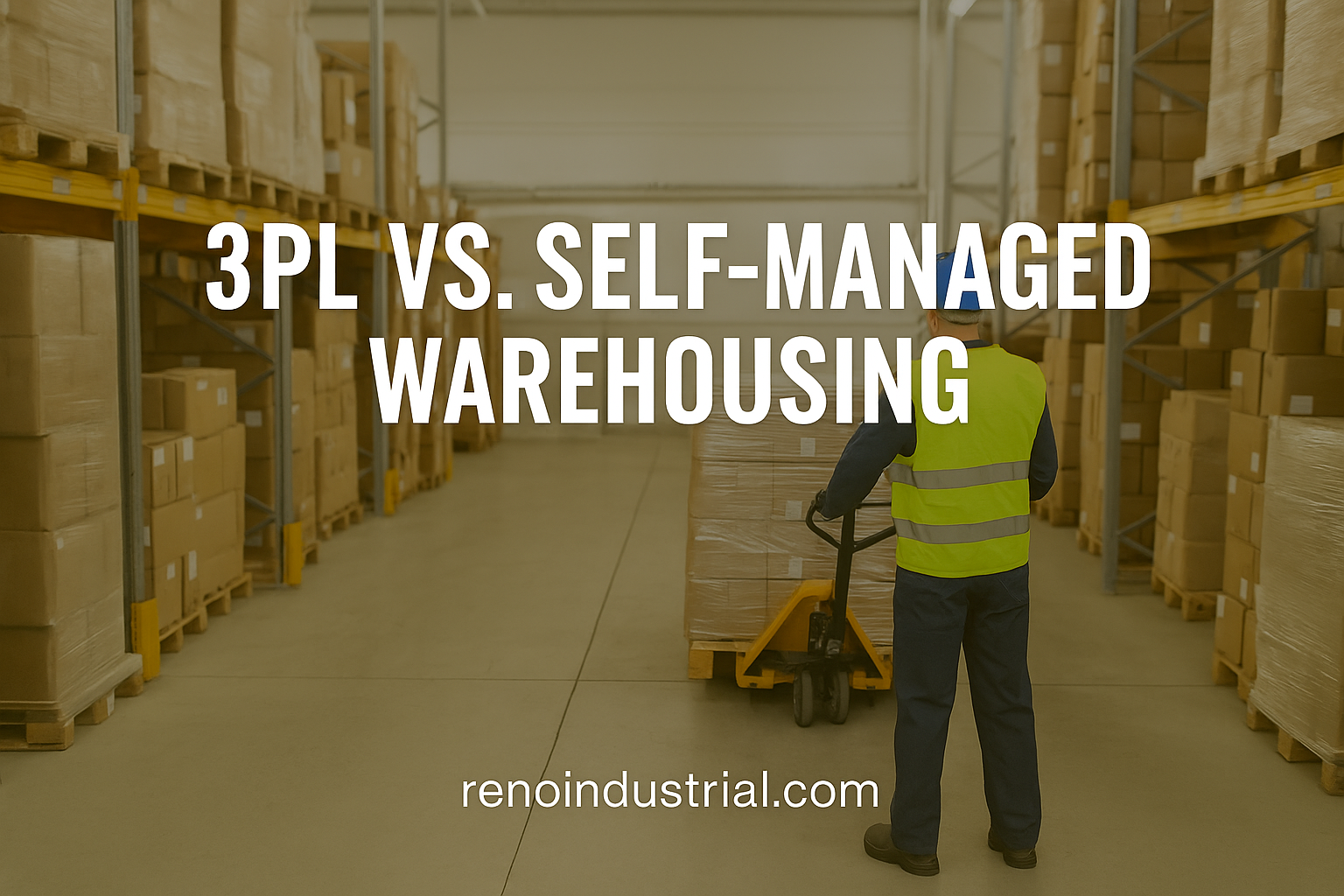3PL vs. Self-Managed Warehousing: What’s Right for Your Business?
As businesses grow and evolve, so do their logistics needs. Whether you're expanding into a new market or reassessing your current fulfillment model, one key decision is whether to partner with a Third-Party Logistics (3PL) provider or manage your own warehouse operations.
Choosing between 3PL and self-managed warehousing? Here’s what to consider.
Here’s a breakdown of both options to help guide your strategy:
Third-Party Logistics (3PL): The Outsourced Advantage
Pros:
Scalability: 3PLs make it easy to scale operations up or down without long-term facility commitments.
Expertise: You gain access to specialized logistics teams and advanced systems without building them in-house.
Speed to Market: Leverage established infrastructure to hit the ground running.
Cost Efficiency at Scale: Avoid major capital expenses in real estate, equipment and labor.
Wider Reach: National and global networks allow for broader geographic coverage.
Cons:
Less Operational Control: You're trusting a third party to represent your brand and manage service quality.
Limited Customization: Many 3PLs offer standardized solutions unless you're paying for premium services.
Recurring Costs: Fulfillment, storage, and service fees can add up—especially at lower volumes.
Self-Managed Warehousing: Control in Your Hands
Pros:
Full Operational Control: You manage your space, staff, systems and processes.
Tailored Customer Experience: Greater ability to customize packaging, handling and fulfillment standards.
Long-Term Cost Benefits: Potential for reduced per-unit costs once operations are optimized and volume is steady.
Cons:
High Initial Investment: Purchasing or leasing a facility, hiring staff and implementing systems require significant upfront capital.
Complexity: You're responsible for everything—labor, safety, compliance, tech integration and maintenance.
Lower Flexibility: Scaling or relocating can be challenging without major infrastructure changes.
So, Which One Is Right for You?
The decision comes down to your business size, growth trajectory and internal capabilities. Startups and fast-growing e-commerce companies often benefit from the flexibility and speed of 3PLs, while established businesses with high, predictable volume may find long-term savings and control with a self-managed model.
Here’s Where I Come In:
If you’re currently using a 3PL and considering the shift to a self-managed model, I can help you find a warehouse that fits your needs and growth plan.
If you're just beginning to explore the Reno/Northern Nevada market and need vetted 3PL recommendations, I’m happy to connect you with trusted providers.
I’m your go-to resource for all things industrial real estate in Reno and beyond. Let’s talk and find the right path forward for your logistics strategy.
Beki Dobson, SIOR
Reno Industrial Expert
(775) 830-4428 | beki@mipnv.com

